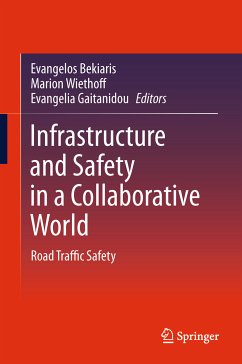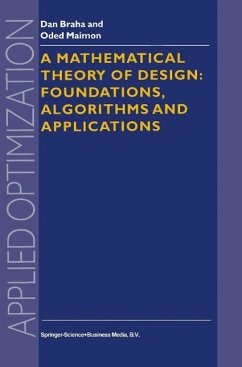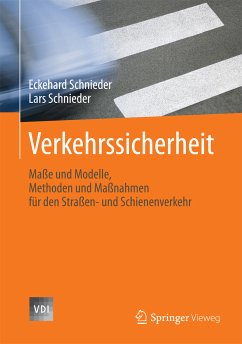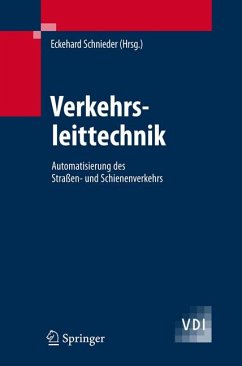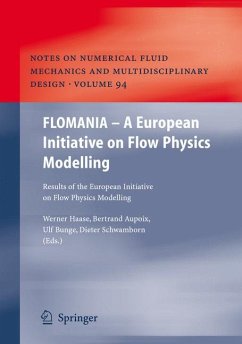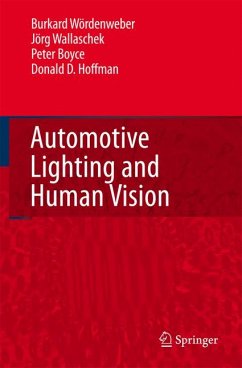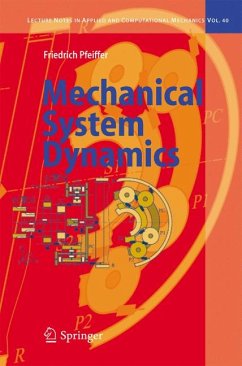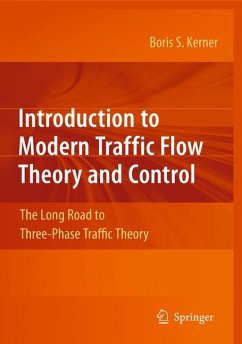
Introduction to Modern Traffic Flow Theory and Control (eBook, PDF)
The Long Road to Three-Phase Traffic Theory
Versandkostenfrei!
Sofort per Download lieferbar
72,95 €
inkl. MwSt.
Weitere Ausgaben:

PAYBACK Punkte
36 °P sammeln!
The understanding of empirical traf?c congestion occurring on unsignalized mul- lane highways and freeways is a key for effective traf?c management, control, or- nization, and other applications of transportation engineering. However, the traf?c ?ow theories and models that dominate up to now in transportation research journals and teaching programs of most universities cannot explain either traf?c breakdown or most features of the resulting congested patterns. These theories are also the - sis of most dynamic traf?c assignment models and freeway traf?c control methods, which therefore are not...
The understanding of empirical traf?c congestion occurring on unsignalized mul- lane highways and freeways is a key for effective traf?c management, control, or- nization, and other applications of transportation engineering. However, the traf?c ?ow theories and models that dominate up to now in transportation research journals and teaching programs of most universities cannot explain either traf?c breakdown or most features of the resulting congested patterns. These theories are also the - sis of most dynamic traf?c assignment models and freeway traf?c control methods, which therefore are not consistent with features of real traf?c. For this reason, the author introduced an alternative traf?c ?ow theory called three-phase traf?c theory, which can predict and explain the empirical spatiot- poral features of traf?c breakdown and the resulting traf?c congestion. A previous book "The Physics of Traf?c" (Springer, Berlin, 2004) presented a discussion of the empirical spatiotemporal features of congested traf?c patterns and of three-phase traf?c theory as well as their engineering applications. Rather than a comprehensive analysis of empirical and theoretical results in the ?eld, the present book includes no more empirical and theoretical results than are necessary for the understanding of vehicular traf?c on unsignalized multi-lane roads. The main objectives of the book are to present an "elementary" traf?c ?ow theory and control methods as well as to show links between three-phase traf?c t- ory and earlier traf?c ?ow theories. The need for such a book follows from many commentsofcolleaguesmadeafterpublicationofthebook"ThePhysicsofTraf?c".
Dieser Download kann aus rechtlichen Gründen nur mit Rechnungsadresse in A, B, BG, CY, CZ, D, DK, EW, E, FIN, F, GR, HR, H, IRL, I, LT, L, LR, M, NL, PL, P, R, S, SLO, SK ausgeliefert werden.



